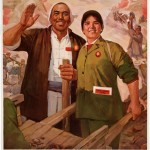
On Établissement (1968)
An important movement has been set in motion in the UJC: Marxist-Leninist militants have formed établissement groups and are going among the popular masses, to live in their midst and to work in production.

An important movement has been set in motion in the UJC: Marxist-Leninist militants have formed établissement groups and are going among the popular masses, to live in their midst and to work in production.
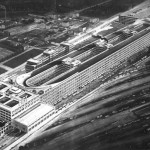
In a 1982 paper presented at MIT, Italian urbanist Paolo Ceccarelli characterized Detroit and Turin as “città fragili” – fragile cities. His assessment contrasted starkly with the way the two “motor cities” had been represented for most of the twentieth century, but it resonated with his contemporary audience.
Tags: Inquiry

When I tell people that I work at a library, a common response is to ask whether I sit around reading books on the job all day. Although asked jokingly, the stereotype contains a kernel of truth and points to a real site of conflict.
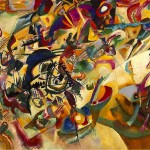
For me the “new reading of Marx” was fundamental as an attempt at critical reconstruction of the revolutionary significance of Marx’s critique of political economy. What really does “critique” mean? Critique of what and for which purpose? The “new reading of Marx” taught me that it means a critique of economic categories, and that this critique entailed an attempt at deciphering economic categories as the objectified forms of definite social relations.
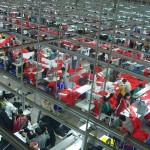
The mobility of labor was indeed part and parcel of the very “environment” within which workerism took shape in the early 1960s in Italy. Internal migration from the South of the country was challenging the political culture of the labor movement in the North, profoundly transforming the composition of the working class and at the same time reshaping the terms of the “Southern question.”
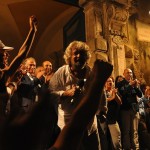
An old limit, perhaps “the” limit of the established political system, is its refusal to accept any ruptures in its rationality that may come from rising political movements. When a new political movement erupts on the scene with unexpected force, even when foreseen, the first move of the political establishment is defensive action and the attempt to assimilate and neutralize it.
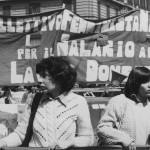
When I encountered workerism, I was 19 years old. I was a grassroots militant of the students’ movement from the University of Padua. I was young, and thus I was silent and I learned. I remember that in many meetings I wanted to say things, but I was shy and insecure and therefore I preferred to keep quiet. The leaders of the movement were generally students who had already learned to do politics because they had some previous experience of party or political organizations. In contrast, I had only my beliefs about the need to change the world for the triumph of equality, freedom, and justice.
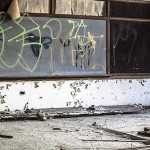
On September 9, 2013, Philadelphia’s students returned to empty schools. Not completely empty, of course – but due to drastic budget cuts by the state, the city’s schools are likely to function as little more than hollowed-out shells of what most of us imagine schools should be.
Tags: Inquiry
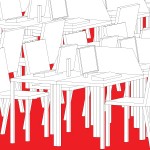
The Viewpoint website has been redesigned, thanks to the excellent work of Peter Rood, and the illustrations of Steven Zambrano Cascante. Our third issue, on the theme “Workers’ Inquiry,” is just around the corner. Until then, here’s a small taste of what’s to come.

At any major demonstration in Oakland, you will see police from all corners of the East Bay • I do clerical work at the University of Sussex • When I was attending Cypress Community College in Southern California, I worked at Labor Ready, a construction temp agency, so that I could pay for school • We are still finding lessons from the last cycle of California’s student struggle • I’ve been organizing with the California Student Union (CASU) project since its inception as a working group created during the first Southern California Education Organizing Coalition conference • Linnaeus is a city of lines straight and single.